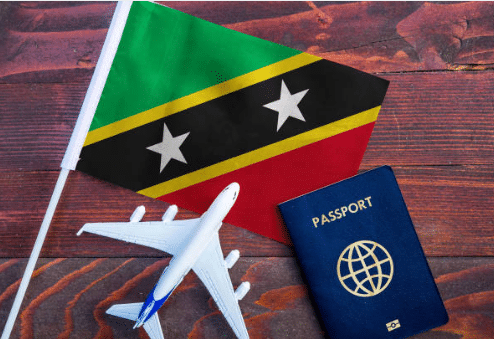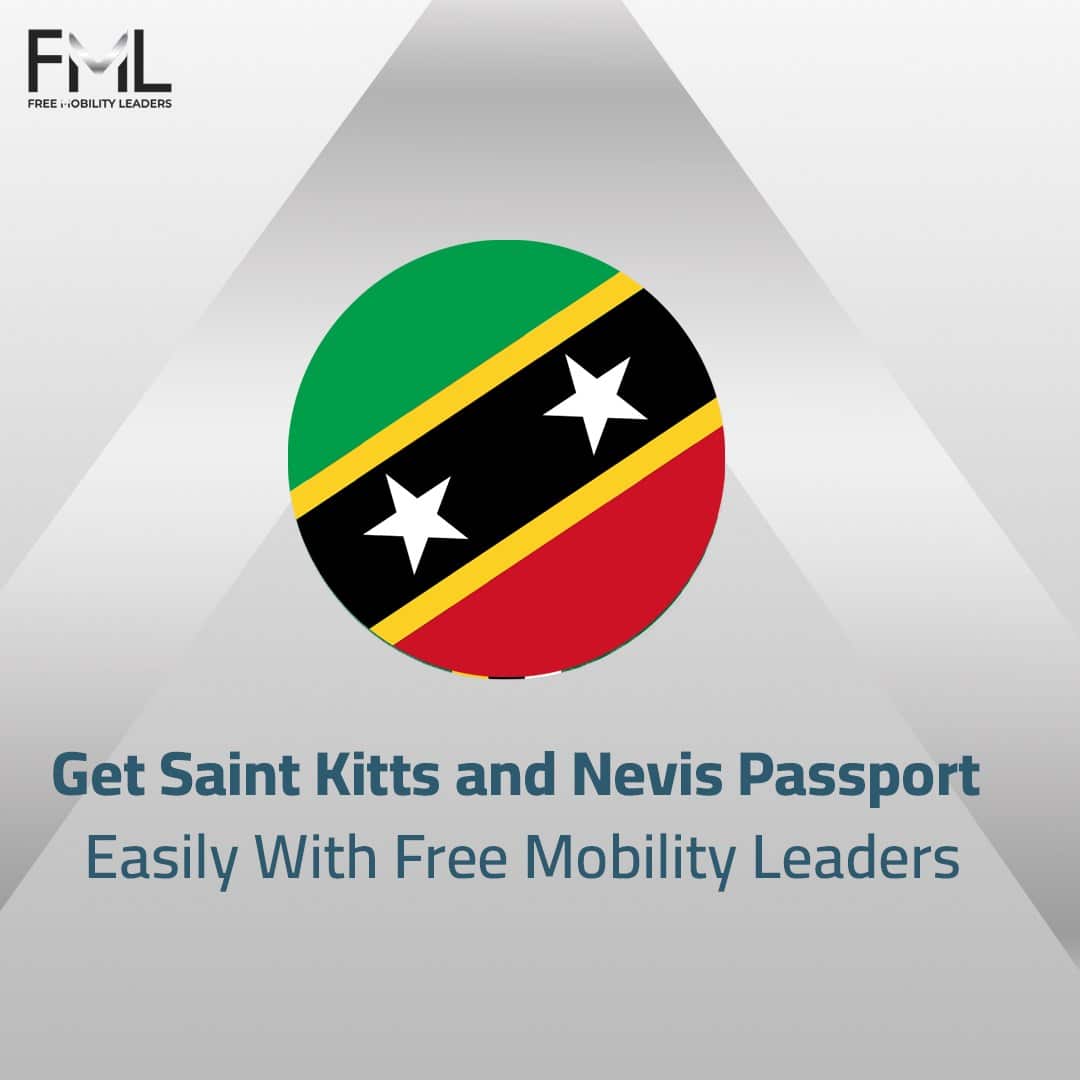
Let’s know more about St Kitts and Nevis Citizenship by Investment Program because when more individuals have the option to work from home, they are searching for new opportunities abroad. With stunning, palm-lined islands like St. Kitts and Nevis available, there’s no reason to live your life in one place.
St Kitts and Nevis Citizenship by Investment Program

Naturalization in Saint Kitts Passport and Nevis can be obtained in six months or longer through the Citizenship by Investment program.
Availability of high-quality education. As inhabitants of St. Kitts and Nevis, scholars and students in any area benefit from educational opportunities.
Students can apply to fully financed scholarship programs both domestically and outside, such as in the US, the EU, Asia, the UK and Commonwealth, and the US. For SKN citizens, there are additional options for bachelor’s, master’s, and doctoral degrees from prestigious universities throughout the globe.
The medical facilities in the islands are well-known for their education. One of the most well-known universities in St. Kitts and Nevis is the University of Medicine and Health Sciences. Its graduates are eligible to take medical licensing examinations, get US and Canadian residencies, and become licensed physicians.
For young children, the county’s 12-year mandatory education program is free.
Worldwide movement. Cosmopolitans may enjoy the benefits of worldwide travel and boost their global mobility, which is one of the key perks of a Saint Kitts passport.
Extended stay permits for the US and Canada. Entrepreneurs and travelers with a passport from St. Kitts and Nevis are eligible to apply for a B-1/B-2/multi-entry B-1/B-1/ten-year visa for the United States. If those visas are still valid or have expired within the last 24 months, they can be renewed online without an interview.
A 10-year tourist visa to Canada that allows for multiple 180-day visits is also available to inhabitants of St. Kitts and Nevis. the economic benefits of St Kitts and Nevis citizenship by investment are available to business owners who register their firms there.
Read more :Advantages of Obtaining a St. Kitts Passport
The History of St. Kitts and Nevis
Christopher Columbus discovered Saint Kitts on his second journey in 1493. He named the island “Saint Christopher” in honor of himself, although it was eventually abbreviated to “Saint Kitts.” The island had been settled between 1623 and 1627 by people from England and France, who claimed parts of it as colonies of their nations. The two nations battled for possession of this island for the following hundred years, but in 1783 Britain was finally awarded full title by the Peace of Paris treaty.
The name Nevis, which Columbus discovered during the same expedition, means “las nieves,” or “the snow,” since when Nevis Peak was first spotted, clouds were drifting above it.
The English formally resolved it in 1628. Together with Anguilla, these two islands formed a single entity under British administration.
Read more: Saint Kitts and Nevis history
Financial Organization
St. Kitts and Nevis was a major producer of sugarcane until 2005. Unfortunately, the island nation’s ability to make money was forced to turn to tourism when worldwide demand collapsed. While certain exports, such as materials and textiles, are still handled today, St. Kitts and Nevis’s primary economic engine is tourism.
Land and Climate
St Kitts and Nevis Citizenship by Investment Program are important to visit these places.
A variety of natural environments may be found in St. Kitts and Nevis, including expansive beaches with volcanic sand, vibrant coral reefs, and towering mountains for hiking. Offering an abundance of outdoor activities for a wide range of interests, it is a nature lover’s heaven. Most people are surprised to learn that St. Kitts and Nevis has 42% rainforest coverage.
There are many different kinds of vegetables, animals, and secret treasures to discover in these verdant woodlands.
Although the temperature range is narrow, St. Kitts and Nevis have mild summers and colder winters due to its location in a tropical hurricane-prone area. From May to November is considered the country’s rainy season, during which 55 inches of rainfall on average per year.
Individuals and Traditions
The majority of the nation’s urban population resides in Basseterre, the capital city. With 30% of the population living in the city and the vast majority (70%), in tiny villages, Basseterre serves as the nation’s industrial and economic center.
St. Kitts and Nevis has a lively, hospitable, and festive culture that is open to anyone. Both islands provide a variety of holiday events, including dances, masquerades, and more for visitors to enjoy. The nation’s traditional customs have also had a significant effect; an abundance of wood, leather, and pottery goods preserves African customs.
What do FM Leaders require to complete St Kitts and Nevis Citizenship by Investment Program?
According to the Saint Christopher and Nevis Citizenship Act, citizenship can be obtained via birth, adoption, naturalization, or registration.
Adoption
Citizenship is available to minors under the age of eighteen who were lawfully adopted by a citizen.
Birth
Your citizenship is awarded to you if:
- With a few exceptions, Saint Kitts and Nevis is where you were born.
- At least one parent is a citizen of the country in which you were born.
- You were born on board a Saint Kitts and Nevis-registered ship or aircraft.
The process of naturalization:
If an adult is of good character, intends to live in Saint Kitts and Nevis, and has lived in the country for the 12 months previous to filing an application, they may be granted naturalization. In addition, you have to be a fourteen-year resident and not be a threat to public order or national security. You will have to take the Oath of Allegiance after being approved.
Sign up:
Those having ancestry or historical ties to Saint Kitts, Nevis, or Anguilla are eligible for citizenship by registration. The citizenship by investment program is one example of this.
Explore The official program of Saint Kitts & Nevis Citizenship .
Considerations for Relocating to St. Kitts and Nevis before getting St Kitts and Nevis Citizenship by Investment Program
The following is a list of important considerations before relocating to St. Kitts and Nevis.
Language:
English is the official language and the predominant commercial language of St. Kitts and Nevis. Spanish is widely used by locals and businesspeople alike, and the federation is home to a burgeoning Latino population.
They also speak a native dialect that is specific to each island and is easy to comprehend because it is mostly based on English.
Acquiring a Residence or Asset:
A variety of choices for owning or renting residential real estate are available in St. Kitts and Nevis.
Spanning all parishes and includes pre-developed property, apartments, condos, and single-family residences.
In Nevis, there are around 130 people per km², but in St. Kitts, there are about 230 people per km². Owing to the tiny population, houses often feature large gardens with lots of fresh air and little noise.
There is a lot of accessible real estate on hillsides with stunning views of the ocean and mountains, even though most people live and work near the shore.
A local real estate agent is required to help you through the process when purchasing a house in St. Kitts and Nevis, and there are several to pick from. The majority of alternatives overlap, so compare many companies to choose one that best suits your needs.
If you want to buy your property, you can choose pre-approved real estate through the Citizenship by Investment program, or you can apply for a Landholder’s license (for non-nationals),this all after getting St Kitts and Nevis Citizenship by Investment Program.
Topography & Climate:
The Caribbean volcanic islands of St. Kitts and Nevis are made up of lowlands and hills with rich, rocky soil. They are particularly vulnerable to floods during the rainy season and fast erosion along the shore. Natural runoff is provided by valleys.
Nevis has a more monsoon climate, whereas St. Kitts has a more dry tropical rainforest environment. There are broad ocean breezes, moderate humidity levels, and temperatures between 70 and 85 degrees. There are two seasons on the islands: the rainy season and the dry season.
Hurricanes are another common occurrence in the area between August and November. When purchasing or building a home, don’t undervalue the need of storm shutters, a generator, and a cistern.
Security:
Because tourism is the primary sector, both the government and the general public have a stake in keeping the area safe and welcoming to foreigners. There is little crime of any kind, and police are there frequently.
At night, the streets are largely deserted, and loitering is uncommon. While carrying cash is thought to be safe, it is not advised.
Follow common sense safety advice, such as securing your house at night and your automobile while you’re not using it. Stay away from unpleasant circumstances and make sure your valuables and personal possessions are safe.
Living Standards:
Families, distant workers, pensioners, and foreign nationals all think the island country is a nice place to live.
There is almost little air or noise pollution, and both islands are tidy and free of outside intrusion. You may enjoy time with your family at home or in the great outdoors without any interruptions or worries. The federation’s residents are probably going to live long lives.
For individuals seeking independence, pleasant weather, and peaceful relaxation, St. Kitts and Nevis presents an enhanced standard of living for St Kitts and Nevis Citizenship by Investment Program.
Read more: St Kitts and Nevis visa free countries
Conclusion | St Kitts and Nevis Citizenship by Investment Program
After obtaining Temporary, Annual, or Permanent residency for 14 years in a row with FM Leaders, you may apply for citizenship by residency. All three residences and work permits may be combined to achieve this.
You are on the island, as shown by your passport’s entrance stamps, therefore it’s crucial to remember that your resident status cannot be interrupted for more than six months.
It’s important to note that visa extensions do not contribute to residence requirements.
You would apply via the Ministry of National Security to get citizenship by residence.

